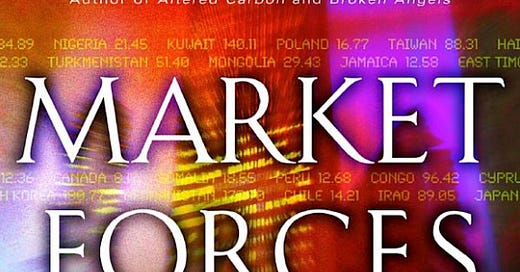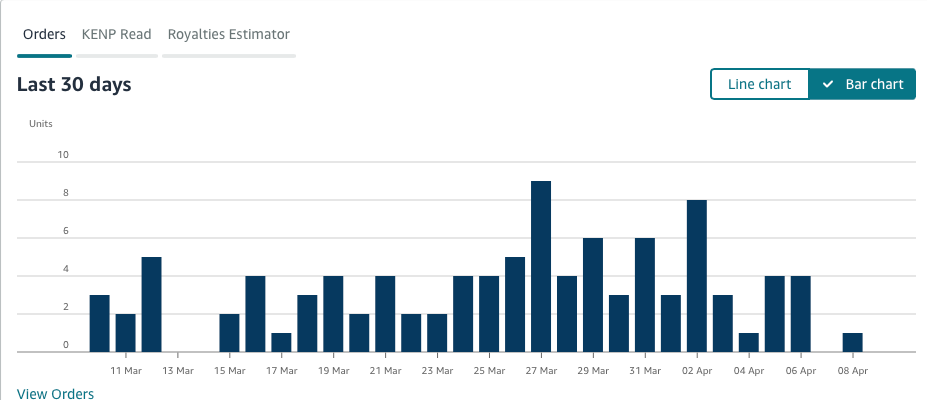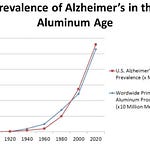The following is the brutal scene at the start of the novel. It is rated X for violence.
Checkout.
The shiny black plastic swipes through.
Nothing.
The machine fails in its habitual insectile chittering and the screen blinks, as if outraged at what it has been fed. The checkout girl looks up at the woman who has handed her the card and smiles a little too widely. It’s a smile that contains as much genuine emotion as there is fruit juice in a carton of Five Fruit D-Lish.
“Are you sure you want to use this card?” Up to her arms in bagged groceries, the woman sets down the two-year-old she has been propping against the checkout flange and looks back to where her husband is still unloading the last of the brightly colored cans and packages from the cart.
“Martin?”
“Yeah, what?”
Voice irritable with the household task they’ve just completed.
“The card doesn’t . . .”
“Doesn’t what?” He meets her eyes and reads the distress there, then switches to the checkout girl. His voice comes out tight. “Run it again, please. Must have glitched.”
The girl shrugs and swipes the card a second time. The screen flickers with the same disdain.
TRANSACTION DENIED.
The girl takes the card and hands it back to the woman. A small pocket of quiet expands around the action, bubbling out past the conveyor belt to the boy at the next checkout unit and to the three customers waiting behind Martin. In a few more seconds it will dissolve into the slither of whispering.
“Would you like to try another card?”
“This is ridiculous,” snaps Martin. “That account had funds as of the first of the month. I’ve just been paid.”
“I can run the card a third time,” the girl offers with studied indifference.
“No.” The woman’s knuckles have gone white around the small piece of black plastic. “Martin, try the Intex.”
“Helen, there’s money in that acc—”
“Some problem,” asks the man behind him, tapping his own plastic significantly against the pile of groceries he has assembled so close to the next customer divider that it’s in danger of tumbling over into Martin’s space.
Martin’s mouth shuts like a trap.
“No problem.”
He hands over the blue-flecked Intex card and watches at least as intently as the people behind him while the checkout girl swipes it.
The machine chews it over for a couple of moments,
And spits it out.
The girl hands it back and shakes her head. Her smooth plastic politeness is beginning to degrade.
“Card’s blocked,” she says dismissively. “Terminal audit.”
“What?”
“Terminal audit. I’m going to have to ask you to put those purchases back on the far side of the counter and leave the store.”
“Run the card again.”
The girl sighs. “I don’t have to run the card again, sir. I have all the information I need right here. Your rating is invalidated.”
“Martin.” Helen presses forward at his side. “Leave it, we’ll come back when it’s cleared u—”
“No, goddamn it.” Martin shrugs her off and leans over the counter into the checkout girl’s face. “There is money in that account. Now swipe the card again.”
“Better do as she says,” says the pushy customer behind him.
Martin swings on him, tensed. “This got something to do with you?”
“I am waiting.”
“Well, wait some fucking more.” He snaps his fingers in the man’s face, dismissing him, and the pushy customer flinches back. Martin turns back to the checkout girl. “Now, you—”
The prod hits him in the side like a rude elbow. A heartbeat later the charge shocks him off the counter and into a seemingly immense clear space. He hits the floor, smelling burned fabric.
He hears Helen shriek. Sees confusedly from floor level. Boots in front of him and a voice that sounds like tearing cardboard at a great height.
“I think you’d better leave the store, sir.”
The security guard hauls him to his feet and props him against the counter again. A big man, swelling at the waist but watchful and hard around the eyes. He’s been doing this for a long time, probably cut his teeth on cordoned-zone clubs before he got this gig. He’s shocked men before, and Martin is out of office clothes at four thirty on a Wednesday afternoon, casual in faded jeans and a well-worn crew-necked pullover that doesn’t show what it was once worth. The security guard thinks he has the measure of this one. He doesn’t know, can’t know.
Martin comes off the counter.
The palm heel strike smashes the guard’s nose flat. The knee goes in at groin level. As the guard falls, Martin drives into the base of his skull with one clenched fist.
The guard hits the ground a deadweight.
“Stand where you are!”
Martin reels around and comes face-to-face with the guard’s smaller female partner just as she clears a pistol from her holster. Still scrambled from the cattle prod, he lurches the wrong way, toward her, and the guard blows his brains out all over his wife and son and the checkout and the checkout girl and all the shiny packaged items on the belt that they can no longer afford.
Writers like Morgan lift their heads above the waterline to look around. Here is one of the epigraphs to his book.
If (I asked whether) the commercial banks, the official creditors, the Bank, the IMF, the TNCs, the money managers, and the global elites were happy, who were we to complain?
—Susan George THE LUGANO REPORT (Lugano is a finance and banking center.)
Morgan could see the war profits, censorship, globalism, and fascist blend of corporate and governments when Market Forces was published in 2004. He also describes corporations’ fantastical wealth, criminal practices, and disregard for human life.
Here is another excerpt where one of the characters describes what it is like to be part of the future’s underclass. It rhymes with today’s reality.
“You want to be an old woman at forty?” She flinched at the lash in his voice. He was losing control now, tears stinging in his eyes. “Is that what you want, Carla? Obese from the shit they stuff the food with, diabetic from the fucking sugar content, allergies from the additives, no money for decent medical treatment. Is that what you want? You want to die poor, die because you’re poor? Is that what you want, Carla, because—”
If you like this book, try Morgan’s Altered Carbon. I sheepishly admit to having read it multiple times. It is more compelling than the derivative TV series, and the writing is lucid and powerful. Spoiler: the Cabal is defeated several books later by a genetic weapon, a deus ex machina, but it is still satisfying revenge porn. (If readers have suggestions for books like Morgan's, I am listening.)
The object of sending you this post is to galvanize you to join the revolution.
Here are numbers for the American Revolution:
The current thought is that about 20 percent of the colonists were LOYALISTS — those whose remained loyal to England and King George. Another small group… were the dedicated PATRIOTS, for whom there was no alternative but independence.
Often overlooked are the fence-sitters who made up the largest group.
With so many Americans undecided, the war became in great measure a battle to win popular support (Yoho emphasis). If the patriots could succeed in selling their ideas of revolution to the public, then popular support might follow and the British would be doomed.
In "Common Sense," Thomas Paine argued for independence from Britain and the creation of a democratic republic. Its publication in January 1776 immediately added fuel to the patriots' cause.
Even with military victory, it would have been impossible for the Crown to regain the allegiance of the people. Revolution would merely flare up at a later date.
The British understood the need to attract American popular support for the parent country, as well. Some colonists who were not persuaded by the political struggle joined the British for personal gain or military glory. Some joined out of sheer loyalty to the Crown — they still believed themselves loyal British citizens. There were also many American farmers willing to sell their goods to the British for profit.
We, too, are in an information war, and citizen journalists like you play a critical role. As Peter McCullough says, once someone sees, they cannot unsee. You are drafted—only if you give a damn—to start a Substack, upload your entire phone list, then mail them every week as I suggested HERE in "Your Conscription Notice Into the Revolutionary Army." You have something to say, and even if you doubt that, you should copy and send out the words of others. If you think this is too much work, contemplate what it was like at Valley Forge during the Revolutionary War. You may soon find yourself in a situation related to that.
Far more Americans have already died in today's Globalist War than in the Revolutionary War. Back then, 6,800 of us were killed in action, and 17,000 died of disease—one percent of the population. Now, well over a million—something like a half percent of us—have died of the Covid and Vax bioweapons plus from denied therapies. This figure includes the million-plus executed in hospitals but does not count the people yet to succumb to long term toxicities. It does not count the fertility decline, either. And we are being poisoned still.
If your delusion is that today’s scene is a spectator sport, you will soon learn the brutal truth.
PS: Here is RFK’s speech Wednesday announcing his candidacy.
The Cassandra’s Memo ebook describing the last 18 months is free HERE if you promise to send the download link to five or more others. With your help, we will try to educate some people who have their thumbs in their… ears, that is.
Bonus: I am also giving away the Hormone Secrets and Butchered by "Healthcare" ebooks using the same arrangement; you can download them free HERE and HERE if you send the links to your friends.
PS: I appreciate you, my readers. I am getting several free download requests a day and my book sales on Amazon pay my Ads contractor.
I am praying that I am doing a little good in the world.
















Share this post